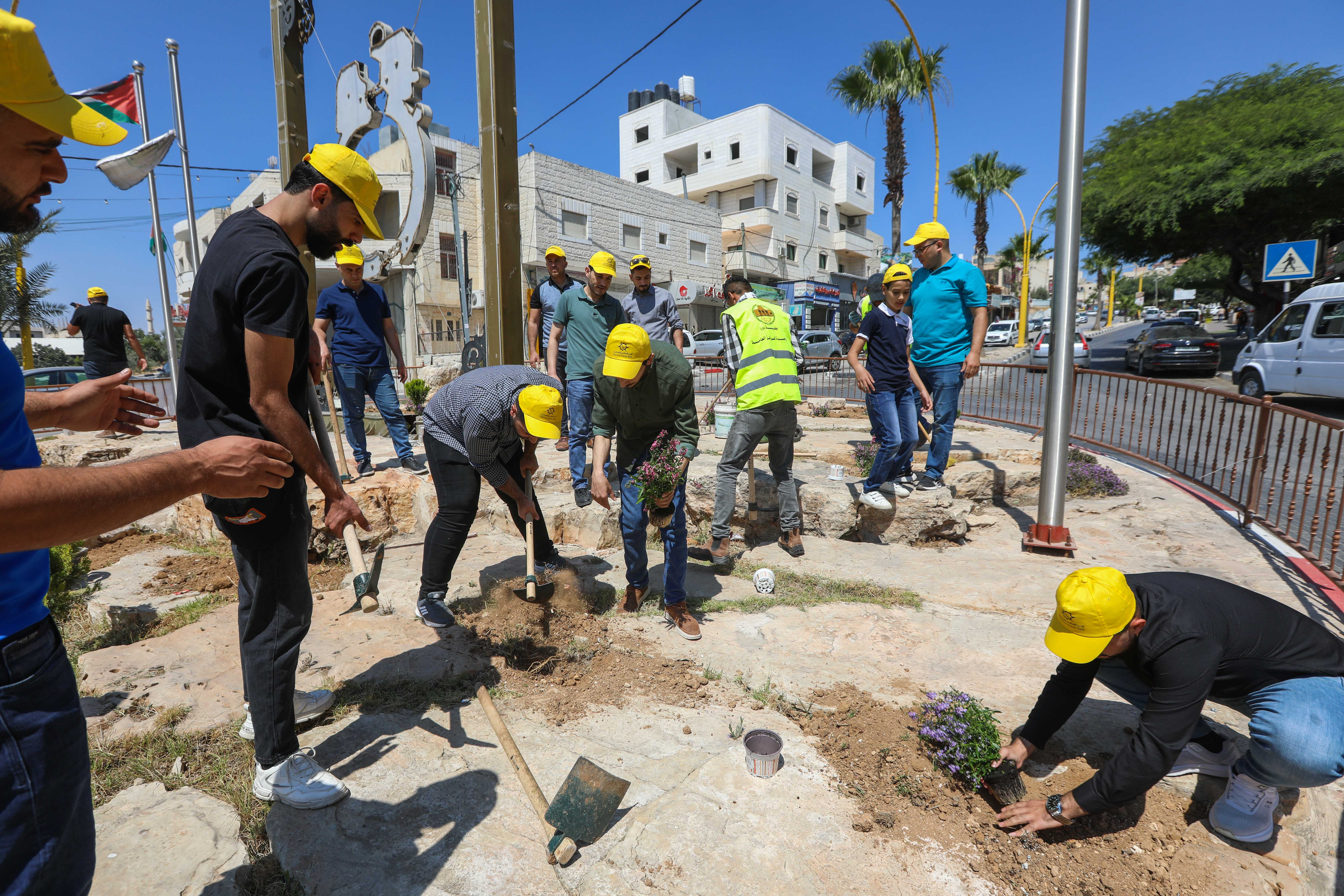
Social responsibility is one of the strategic objectives approved by PIB in its 2023-2026 strategic plan, in line with Islamic Sharia purposes that urge to help others. In fact, PIB annually allocates part of its net profits to its sustainable social responsibility program.
In 2024, PIB implemented a number of projects and strategic partnerships, including with institutions and entities focusing on education, health, elderly care, orphan care, and relief in various governorates across the country, thereby contributing to sustainable development.

Education
In the education sector, PIB provided support to three schools in Jerusalem, to strengthen the resilience of people and institutions facing difficult challenges in Jerusalem, especially in light of the current circumstances.
Orphan and Elderly Care
PIB supported 10 organizations providing care for orphans and the elderly across various governorates. This included cash and in-kind support to empower such organizations and help them in fully providing their services.
Health
The health sector is a top priority in PIB’s Sustainable Social Responsibility Program, given its importance and need for achieving sustainable development. In 2024, PIB provided support to two associations working in the health sector and providing services to people with disabilities. This supports the health activities and services provided by beneficiaries and helps them in improving the quality of health services they provide to citizens.
Relief
As part of its relief efforts, PIB completed home and school renovation projects in partnership with the Palestine Charity Foundation, with the aim of strengthening the resilience of citizens, especially in marginalized areas.
And as part of its efforts to provide relief to our people in the Gaza Strip, PIB prepared a plan for a series of relief programs that it will implement in various areas of the Strip when conditions on the ground allow, ensuring that aid reaches those in need.
Volunteering
PIB focuses on promoting a culture of volunteering among its staff, given its importance in strengthening their sense of belonging to their community. During 2024, many bank employees volunteered to serve their community through programs implemented in partnership with INJAZ Palestine. Volunteers contributed to enhancing the knowledge and skills of school students in various fields.

PIB renewed its commitment to the principles of the UN Charter by publishing its annual report in a row showing the responsible and sustainable policies it adopts in the areas of human rights, labor, the environment, and combating corruption.
The ten principles of the UN Charter can be summarized as follows:
Human rights
Labor
The environment
Combating corruption
Since 2014, PIB has increasingly relied on clean energy sources to power its operations. This stems from its commitment to preserve and protect the environment, in compliance with the verse, "And do not cause corruption on the earth after its reformation. And invoke Him with fear and hope. Indeed, the mercy of Allah is near to the doers of good." [Al-A'raf: 56] The impact of its environmental interventions in one year was equivalent to planting 500 acres of trees (2,100 dunams).
PIB is committed to environmental conservation through six main axes:
The solar energy system at these sites has generated a daily average of 1.4 megawatts of electricity, equivalent to 520 megawatts of electricity annually. This helps in providing a suitable environment free of carbon dioxide that generators emit. The estimated annual emissions of harmful gases avoided by using alternative energy are as follows:
PIB has plans to maximize its reliance on clean energy and increase its production through innovative methods that contribute to environmental protection. In 2024, it joined the list of friendly institutions of the Palestinian Higher Council for Green Buildings, thanks to its environmentally friendly policies and procedures. Most recently, it built the Central Archives Building, which relies entirely on solar energy for electricity.